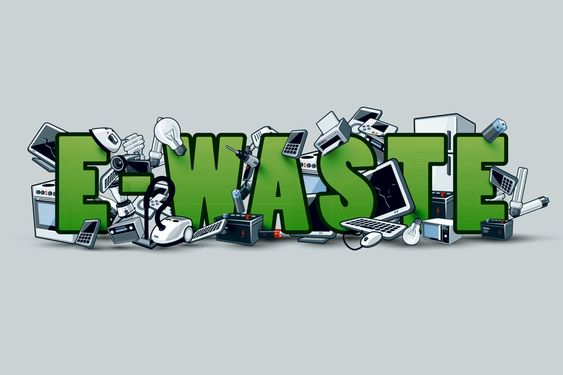
In our daily lives, we frequently come across e-waste without giving much thought to its impact. Old mobile phones, outdated laptops, broken televisions, and other electronic gadgets often end up collecting dust in our homes. Many of us tend to give these items away to local kabadiwalas (scrap dealers) without considering proper recycling options. However, managing e-waste responsibly is essential for protecting our environment and health. In this blog, we’ll explore what e-waste is, why it’s important, and how we can address this growing issue effectively.
What is E-Waste?
E-waste refers to discarded electronic devices and gadgets. This includes a wide range of items such as:
- Mobile phones
- Computers and laptops
- Televisions
- Refrigerators
- Washing machines
Managing e-waste is crucial for our environment. Here’s why:
- Toxic Substances: E-waste contains harmful materials like lead, mercury, and cadmium that can leach into the soil and water, causing environmental and health problems.
- Resource Recovery: Electronics contain valuable metals like gold, silver, and copper. Proper recycling allows these materials to be recovered and reused, reducing the need for mining new resources.
- Reducing Landfill Waste: Proper e-waste management helps reduce the amount of waste that ends up in landfills, thereby minimizing environmental pollution.
Indian Waste Production Statistics
India is the third-largest producer of e-waste, generating around 3.2 million metric tonnes annually. Only about 10% of e-waste in India is formally recycled, leading to significant environmental and health issues.
Environmental Impact of E-Waste
- Soil Contamination: Toxic chemicals from e-waste can seep into the soil, affecting plant life and entering the food chain
- Water Pollution: Harmful substances can leach into groundwater, rivers, and lakes, affecting aquatic life and human health.
- Air Pollution: Burning e-waste releases dangerous gasses into the atmosphere, contributing to air pollution and respiratory problems.
Harmful Effects of Improper E-Waste Disposal
- Health Hazards: Exposure to toxic materials can lead to serious health issues, including respiratory problems, skin disorders, and neurological damage.
- Ecosystem Damage: Improper disposal can lead to the destruction of habitats and harm to wildlife.
What Can We Do About It?
- Proper Disposal: Always dispose of e-waste at designated recycling centers.
- Reduce and Reuse: Before discarding electronics, consider repairing or donating them.
- Recycling Programs: Participate in local e-waste recycling programs and events.
- Consumer Awareness: Stay informed about the importance of e-waste management and spread awareness.
Conclusion:
E-waste is an ever-growing issue that needs to be handled ethically and responsibly. By understanding its impact and taking proactive steps, we can protect our environment and health while conserving valuable resources. Let’s work together to ensure a sustainable future by managing e-waste effectively.
